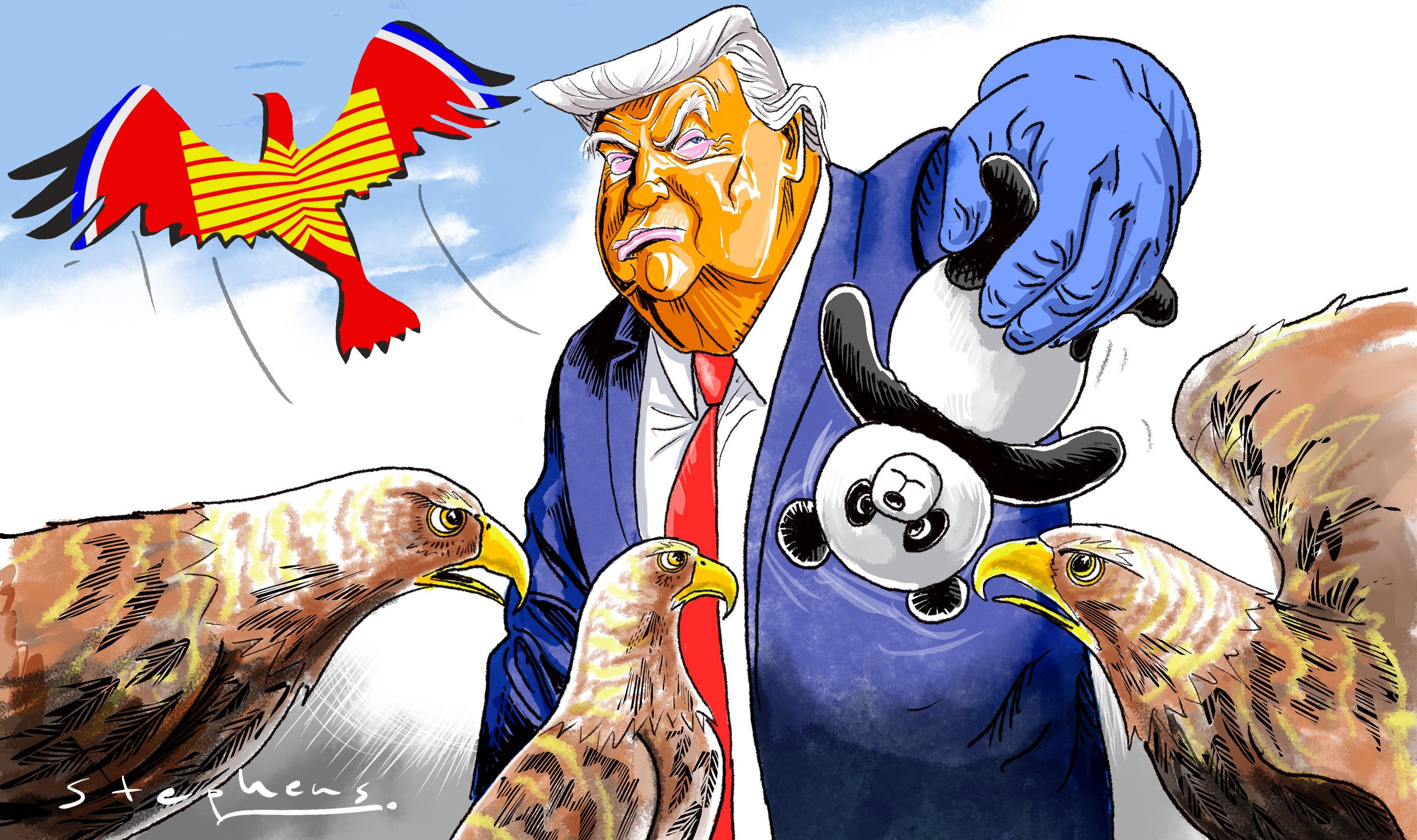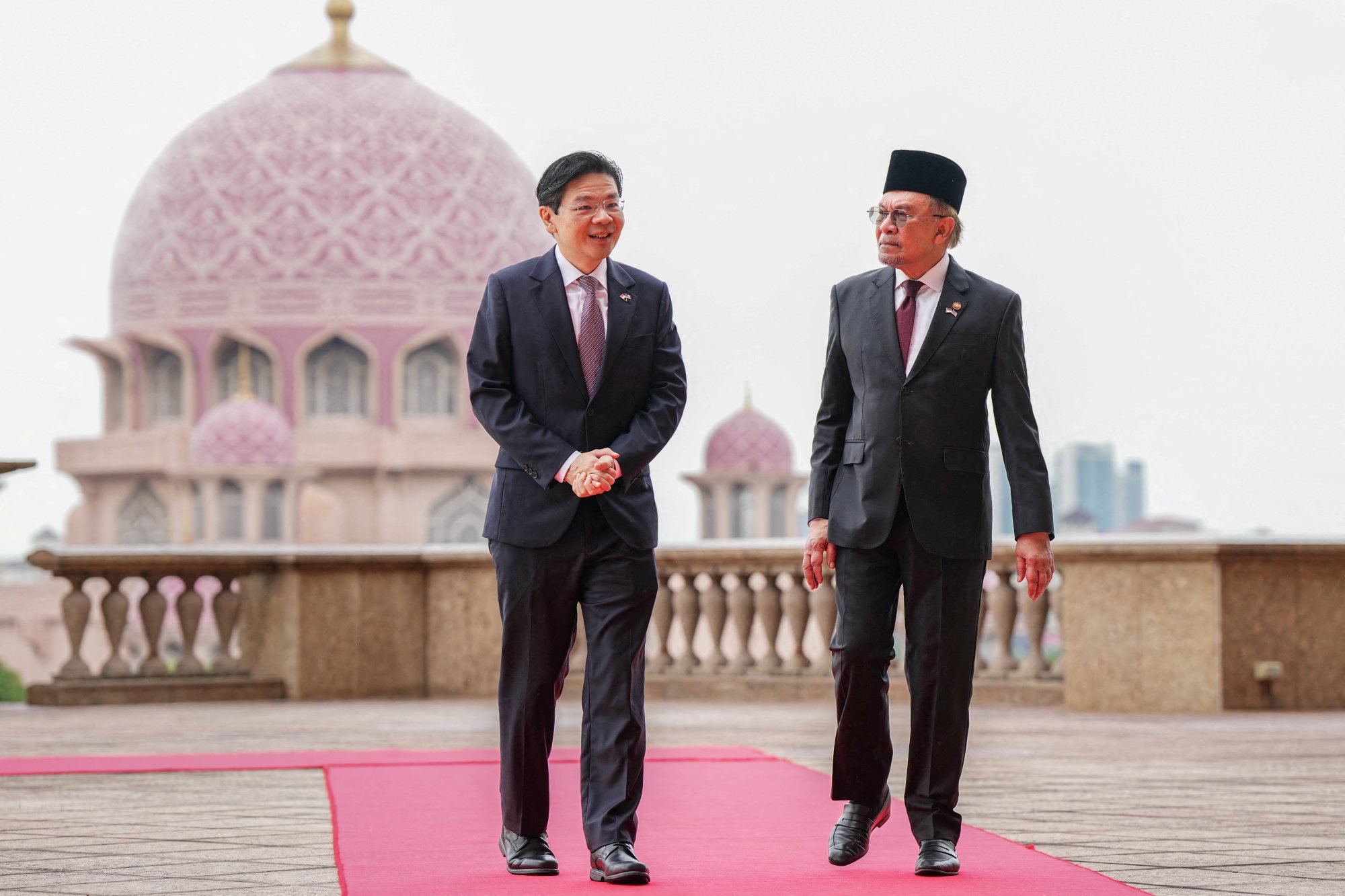Why US defence chief’s attack on China won’t find favour in Southeast Asia
The US is playing up the ‘China threat’ and wants allies in Asia to increase defence spending, but it may find this to be a hard sell

After listening to US Secretary of Defence Pete Hegseth’s all-out attack on “communist China” at the Shangri-La Dialogue in Singapore, some might have wondered what the Chinese people would make of it. But as a Chinese delegate listening to him live, I was wondering what Hegseth’s boss, US President Donald Trump, would think. In February, Trump called US Vice-President J.D. Vance’s speech in Munich bashing European allies “brilliant”. This time, we haven’t had his thoughts.
I wondered, not only because Trump doesn’t have a clear China strategy, but also because his attitude towards US allies in Europe and Asia is like a pendulum. It is well known that Trump wants his European allies to increase defence spending so they can deal with Russia on their own, leaving the US to shift its focus to the Indo-Pacific, and China in particular.
It appears today that America’s Asian allies are more important than its European allies. The problem, though, is that the US has far fewer allies in Asia and none see China, their largest trading partner, as an existential threat in the same way that America’s European allies view Russia.
In Singapore, Hegseth said the China threat is “real” and “could be imminent”, claiming that it is public knowledge that the People’s Liberation Army has been tasked with being capable of attacking Taiwan by 2027. This conclusion is quite different from that of his predecessor Lloyd Austin, who said at the dialogue in 2023 and 2024 that a conflict was neither imminent nor inevitable.
Many in Southeast Asia would question such assessments of security threats from a television anchor-turned-defence secretary. When asked by US Senator Tammy Duckworth to name one member of the Association of Southeast Asian Nations during his confirmation hearing, Hegseth couldn’t even do that. In the question and answer session at the Shangri-La Dialogue, his answers were a hodgepodge.
Hegseth seemed to suggest that allies in Asia should increase their defence spending to 5 per cent of gross domestic product because that’s what he says Nato members are pledging. That’s a fool’s errand.
Japan is struggling to increase its defence spending to 2 per cent of GDP by 2027. South Korea’s defence spending in 2023 stood at 2.8 per cent of GDP. Australia’s spending has hovered around 1.9-2 per cent of GDP in recent years. The Philippines spends around 1 per cent.
The United States spent more than the next nine countries’ combined on defence last year, but the overall trend is that its own defence spending will decline, according to the Congressional Budget Office – dropping from 2.9 per cent of GDP in 2025 to 2.4 per cent by 2035.
Taking sides is the last thing countries in the region wish to do. First, China is far stronger relative to its Asian neighbours than Russia is to its European ones. Even America’s firmest allies in the region would balk at assisting the US in a direct conflict with China.
Second, regional organisations like Asean welcome China-US competition as this gives them a chance to promote their own heft and centrality – but only as long as that competition is manageable. In the event of a US-China military conflict, Southeast Asia is at risk of becoming a major battlefield.
This is why Malaysian Prime Minister Anwar Ibrahim said: “Our approach is one of active non-alignment. We will engage all who are willing … not to set one against the other”. Singapore’s defence minister said something similar: “For Singapore, we believe that taking sides, regardless of issues and context, breeds irrelevance.”

Beijing won’t rush to turn neighbouring countries into enemies. Even if it has three conditions under which it would use non-peaceful means against Taiwan as a last resort, it has never talked about using force against Southeast Asian nations.
For those wondering what might happen between Beijing and Manila, my answer is: if China had wanted to drive a dozen or so Filipino soldiers away from a deliberately stranded ship at the Second Thomas Shoal, could they have stayed there for 26 years?
Although Hegseth said conflict over Taiwan could be imminent, he also said the US hoped not, which suggests he isn’t very sure of the eventuality.
In fact, Beijing hasn’t lost patience with regard to peaceful reunification. In the future, the PLA will no doubt continue its exercises around Taiwan to rehearse all possible scenarios in preparation for the worst, but perhaps when the Democratic Progressive Party-led Taiwanese authorities feel the mounting pressure, the PLA won’t have to use force. After all, peaceful reunification best serves China’s interests, and time is on the mainland’s side.
There has been much comment on China not sending its defence minister to the Shangri-La Dialogue. This has been interpreted in different ways, but it shows at least that China won’t bother giving the US defence chief a tit-for-tat response.
The same is true of China in the tariff war. It was Trump who pushed for a conversation with President Xi Jinping. While Trump characterised the call as being focused on trade, China’s official summary pointed out that the US should handle the Taiwan issue prudently to prevent a dangerous conflict.
The summary also contained an unusual warning – do not let others steer the ship off course and jeopardise the relationship. Who are these others? It is no secret that Trump is surrounded by China hawks. He shouldn’t think he can let them peck at China when he deems it necessary. That is far too dangerous a game.